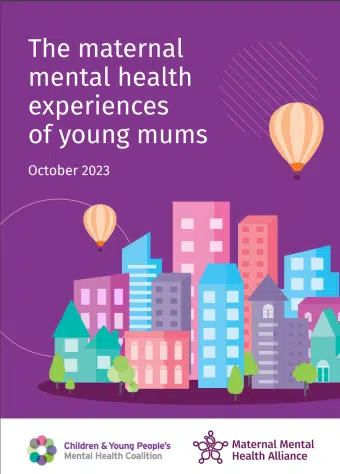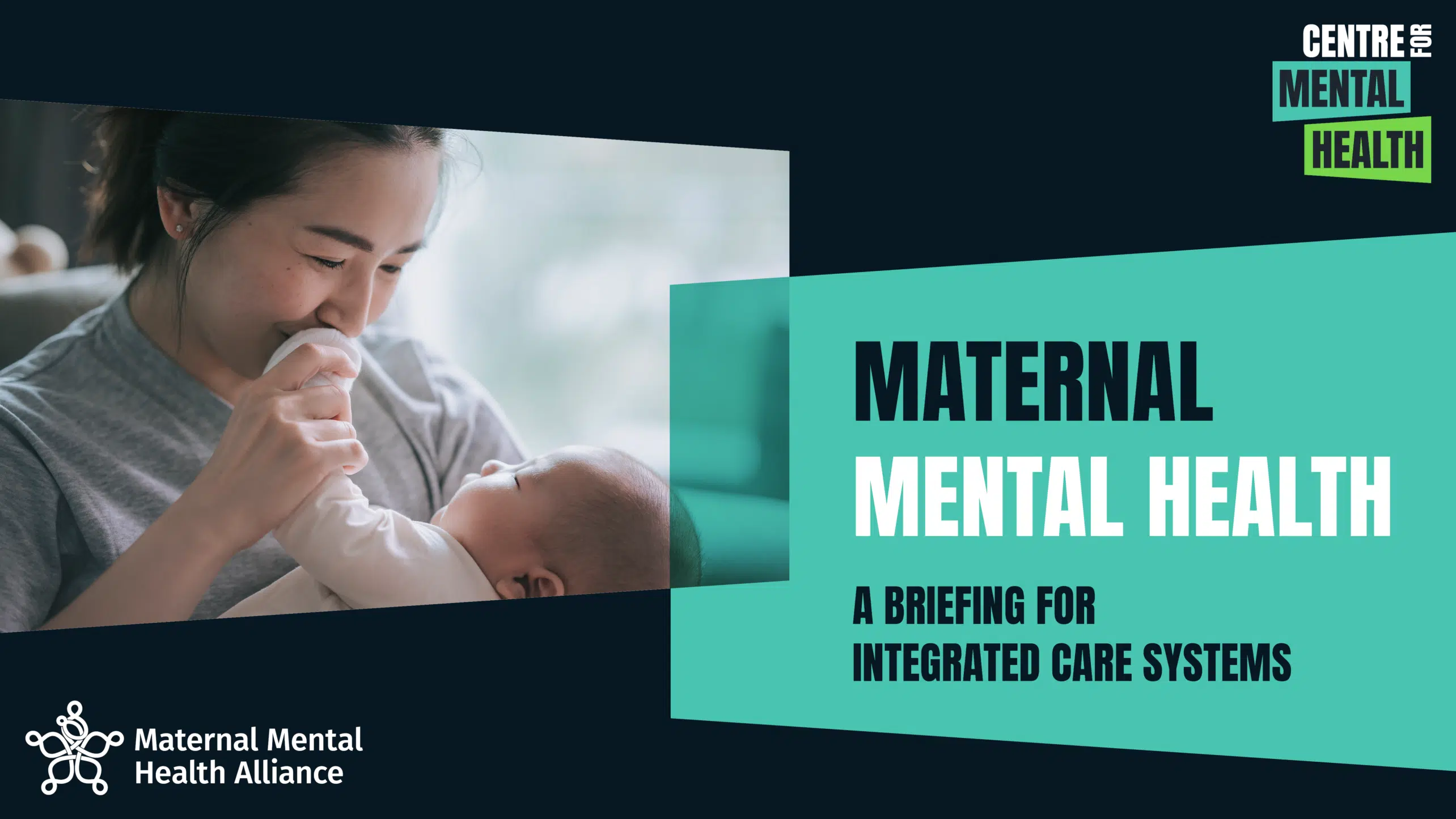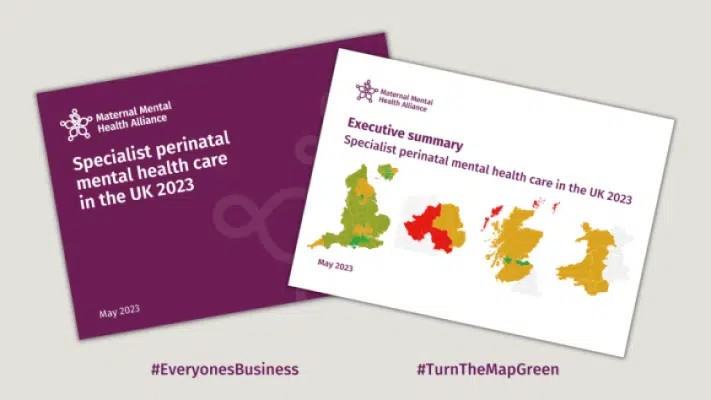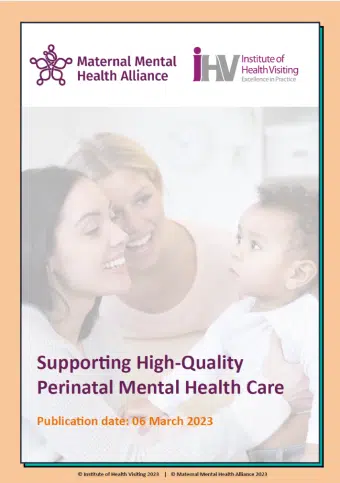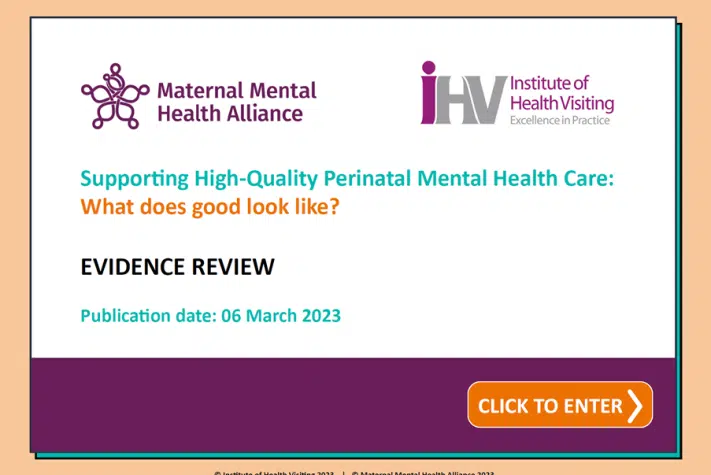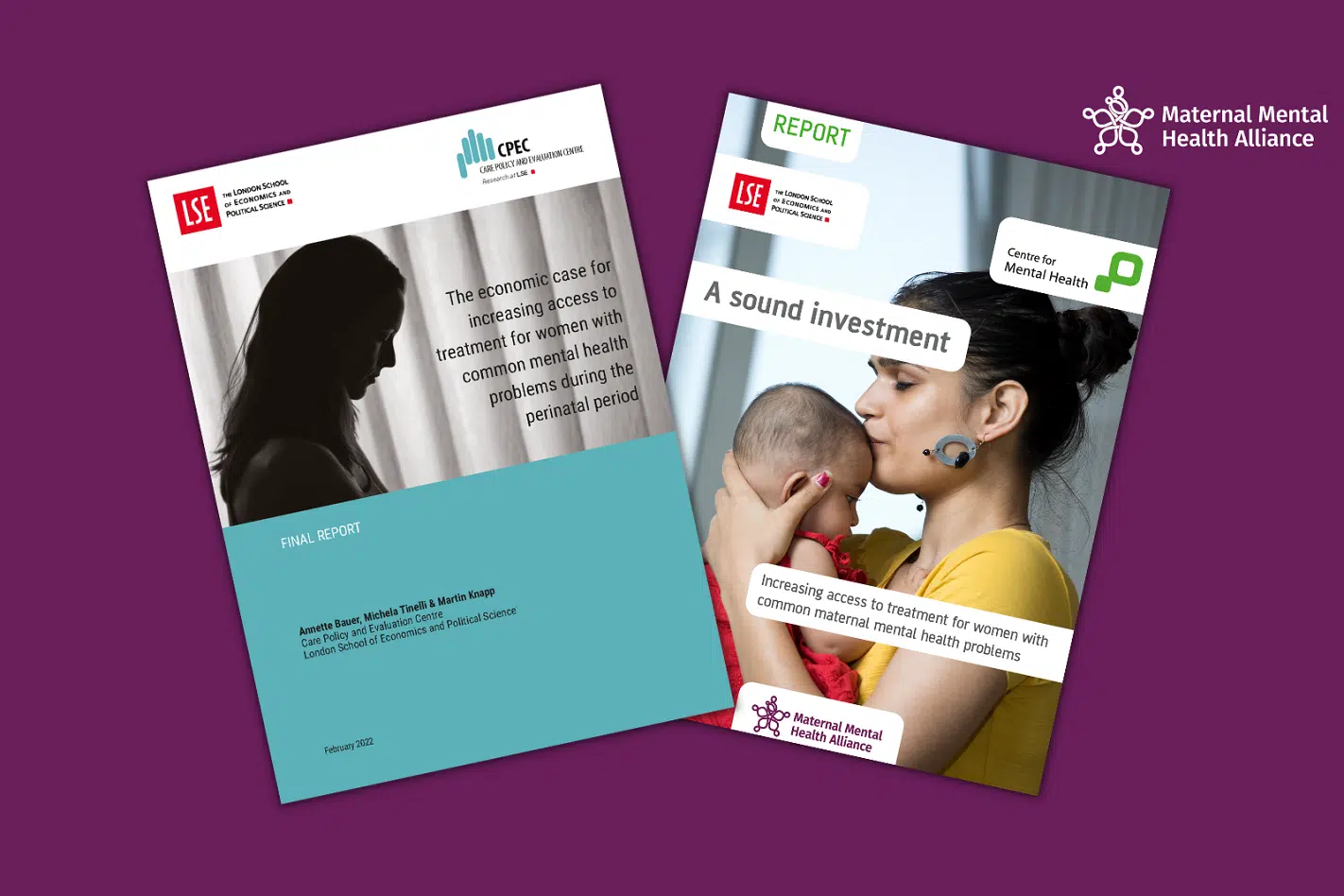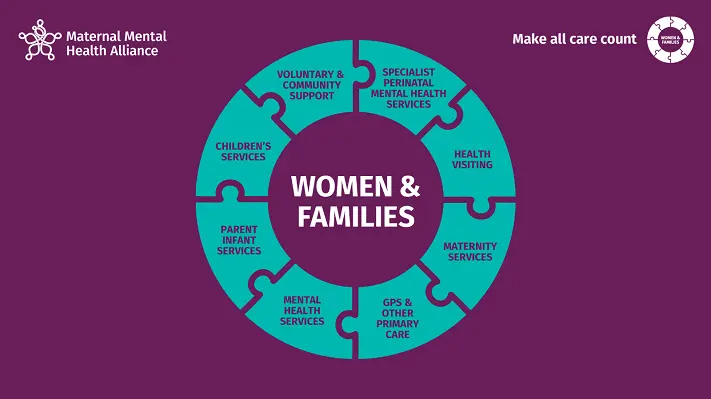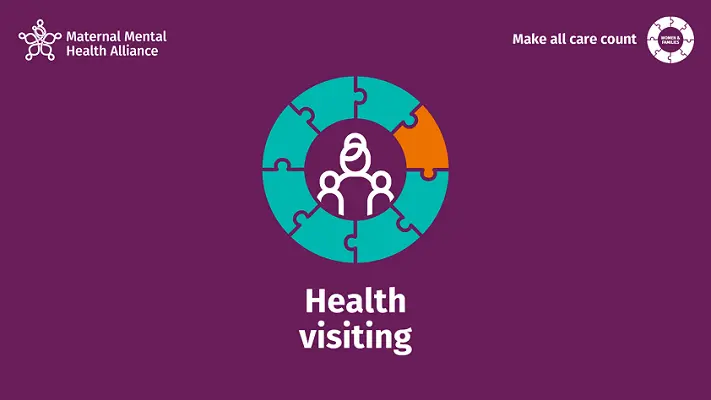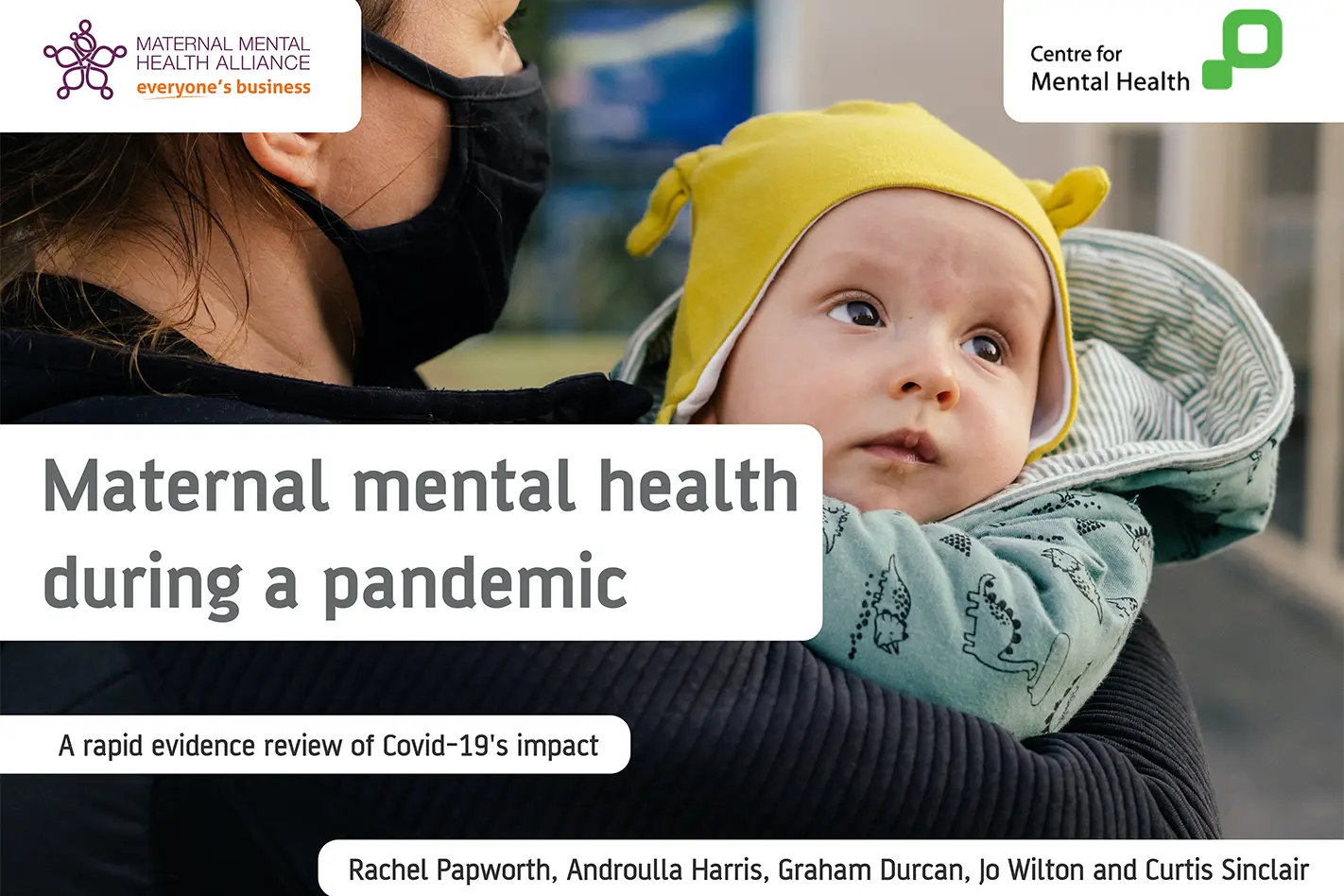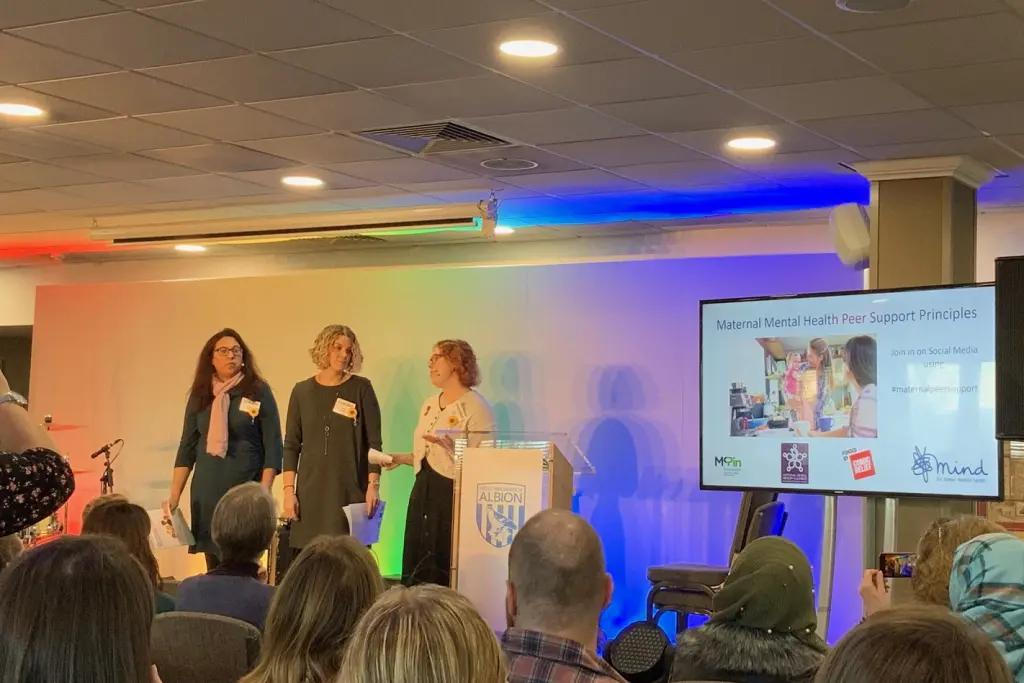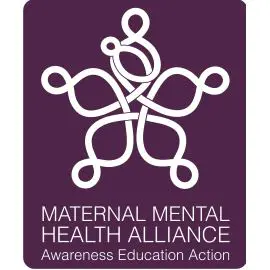The Children and Young People’s Mental Health Coalition and the Maternal Mental Health Alliance have, today, launched a new briefing exploring the mental health experiences of young mums.
Findings from a rapid review of the literature and focus groups with young mums from across the UK show that young mums aged 16-25 are at higher risk of experiencing mental health problems during pregnancy and after birth and face significant barriers in accessing support. Where they do access support, experiences of services can be poor.
Based on feedback received from young mothers, this briefing identifies 4 priority areas for action:
- Listen and respond to the needs of young mothers in national and local systems
- Resource and invest in universal and preventative services
- Ensure access to specialist mental health services
- Research and listen to the voices of young mums
An infographic depicting a ‘Dream City of Support’ informed by focus group discussions with young mums identifies health visitors as part of a range of services they would like to see in place. The briefing highlights the skilled, preventative work that health visitors offer and aligns with existing evidence that health visitors, when adequately resourced and trained, can provide clinically and cost-effective perinatal mental health care. However, the drastic reduction in the health visitor workforce over recent years means urgent action is needed to ensure that all families, and particularly those facing multiple disadvantage, are able to quickly access the right support.
Hilda Beauchamp, Perinatal and Infant Mental Health Lead at iHV, said:
“We welcome this timely report highlighting areas for action to improve services for young mums. We know that young mums are so much more likely to experience shame, stigma and judgment and that this can significantly impact their mental health. The rise in teenage maternal suicide rates highlighted in the recent MBRRACE report was sobering.
“At the iHV, we are fully supportive of the coalition’s recommendation to conduct an in-depth review of the circumstances surrounding these deaths. Currently health visitor records are not routinely examined as part of the Confidential Enquiry review process. Health visitors are the only health professionals that proactively and systematically reach all families with babies and young children throughout the perinatal period, including young mums. We would recommend consideration of the contribution that health visitors can make to the MBRRACE process to fully understand where change can be made in the provision of services across the whole pathway of care.”
Becoming a parent is challenging at any age, but many young mums experience additional difficulties such as experiences of care, isolation and loneliness, housing difficulties, poverty and employment discrimination, that contribute to poor mental health. Learning from best practice examples of holistic support for young mums across the UK is included in this briefing, adding weight to the recommendations for further work and research, including action required in the devolved nations.
The iHV fully supports the report’s concluding statement that:
For too long, young mums’ needs and views have been ignored. It is time their experiences were listened to, and their needs centred in the planning of perinatal mental health support.


